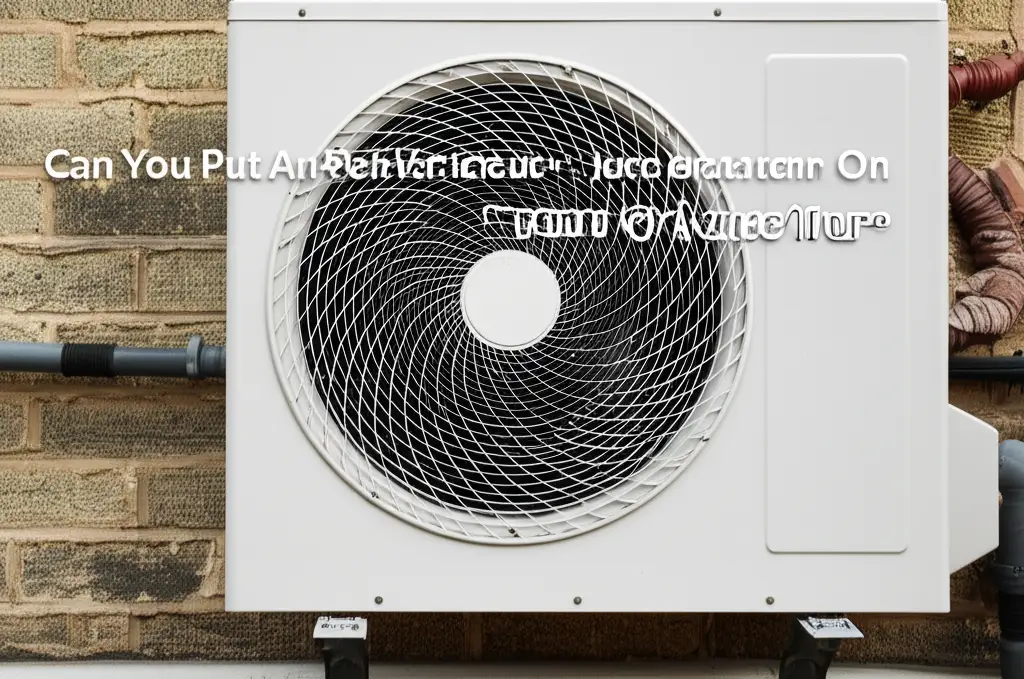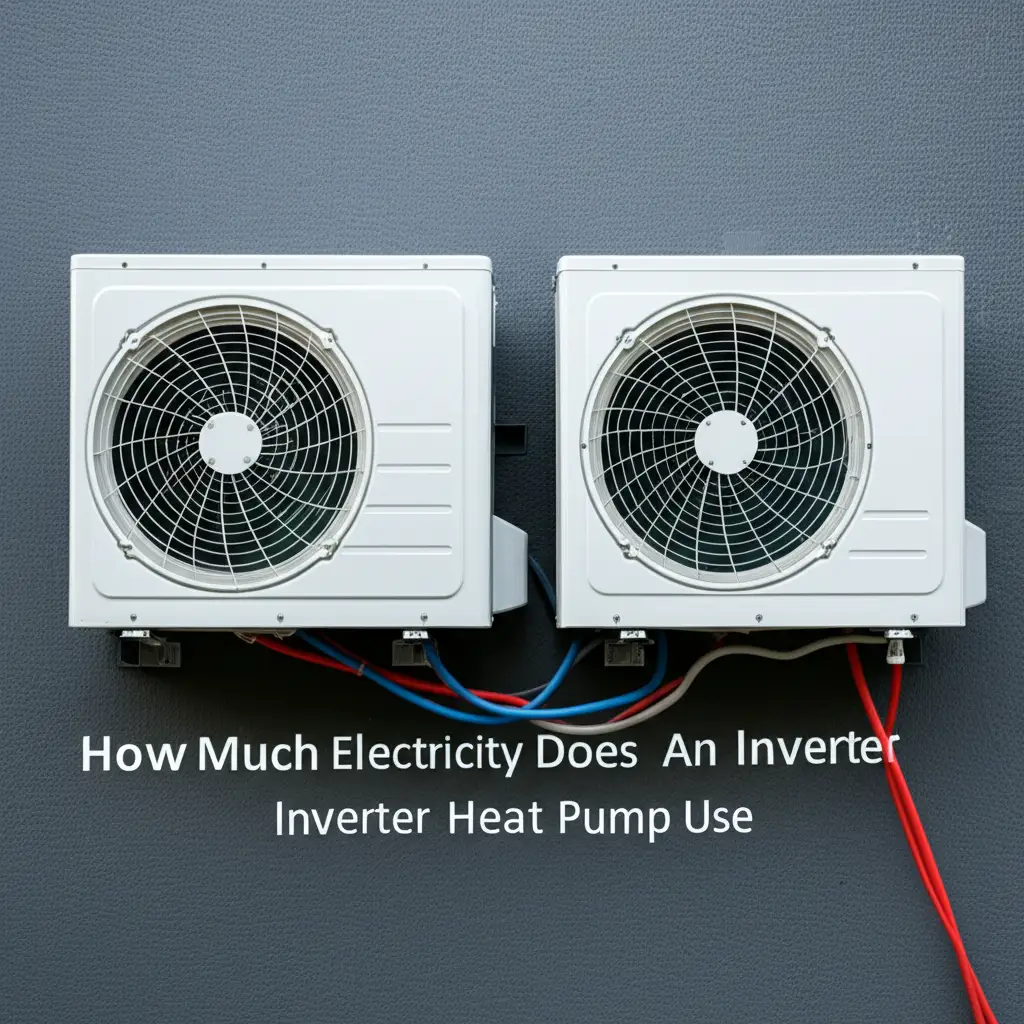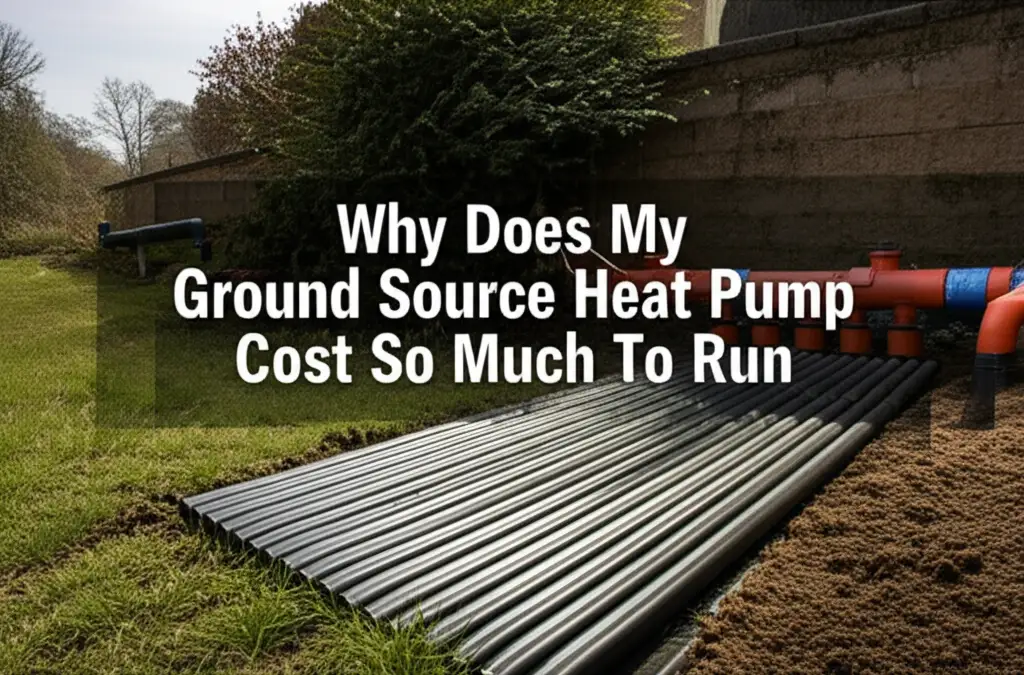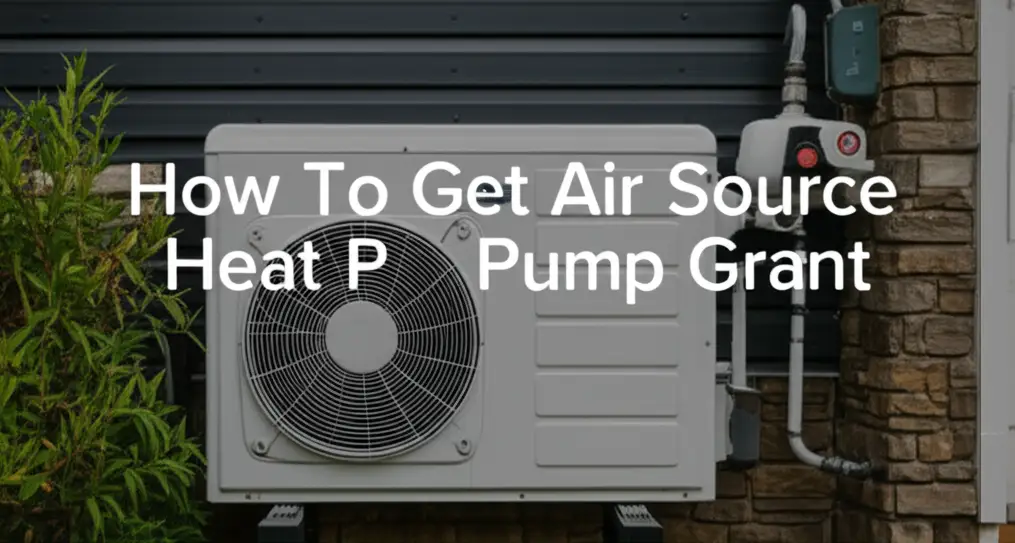· Katria Melrose · Home Energy · 17 min read
How To Apply For Air Source Heat Pump Grant
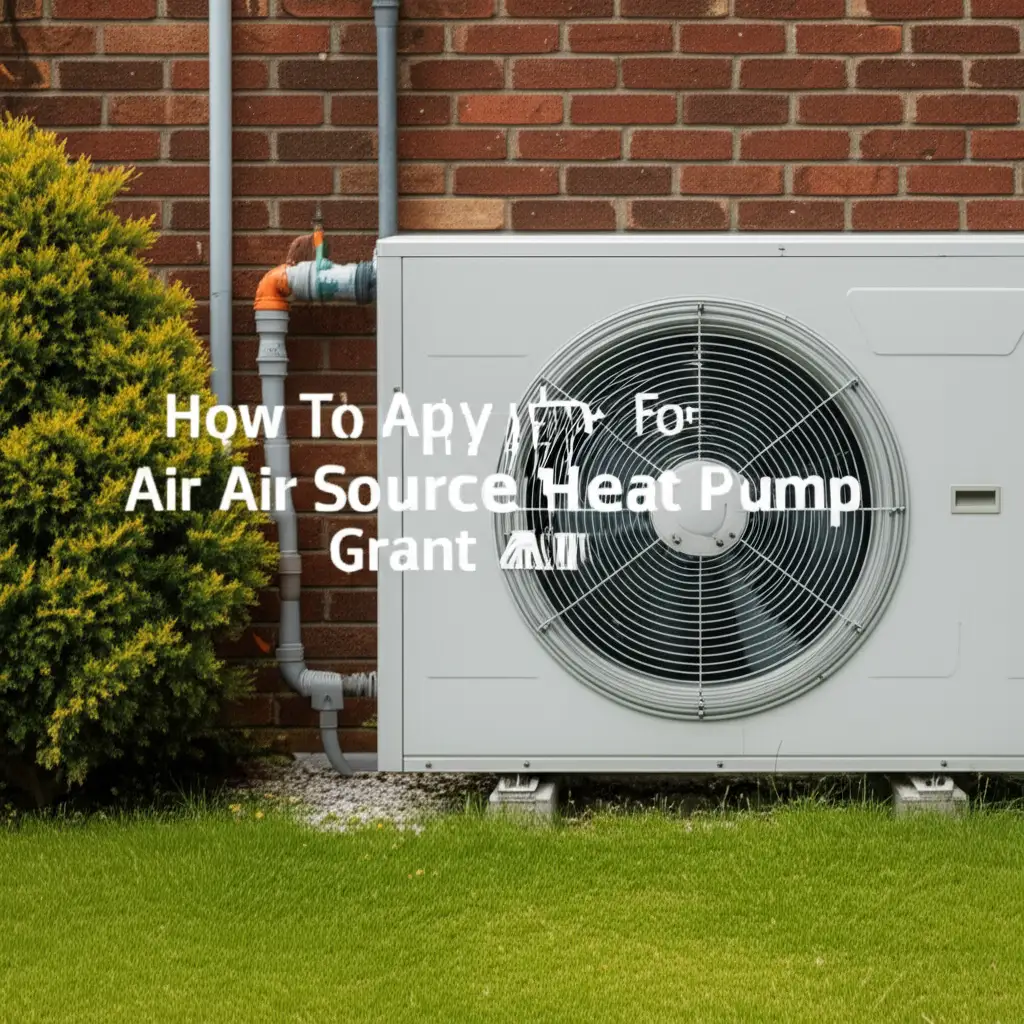
Unlock Your Heat Pump Grant: A Simple Guide
Thinking about upgrading your home heating? An air source heat pump offers an efficient, green alternative to traditional boilers. However, the initial cost can feel high. Thankfully, grants exist to help make this transition easier.
I understand you might feel overwhelmed by the thought of applying for government funding. Many people do. This guide breaks down exactly how to apply for an air source heat pump grant. We will cover the main grant schemes, eligibility rules, and the step-by-step process. By the end, you will know exactly what to do to secure funding for your new heat pump system. Let’s get started on making your home more energy-efficient and comfortable.
Takeaway
- Identify the right grant scheme for your situation, primarily the Boiler Upgrade Scheme (BUS) in the UK.
- Check your eligibility based on property type, existing heating system, and EPC recommendations.
- Find an MCS-certified installer who will handle the grant application on your behalf.
- Get quotes from multiple installers to ensure a fair price for your heat pump installation.
- Approve the installer’s grant application and proceed with the installation after grant approval.
How to Apply for an Air Source Heat Pump Grant
To apply for an air source heat pump grant, you typically find an MCS-certified installer. This installer checks your eligibility and applies for the grant on your behalf through schemes like the Boiler Upgrade Scheme (BUS). You then approve the grant application before installation proceeds.
Understanding Air Source Heat Pump Grant Schemes
The journey to installing an air source heat pump often begins with understanding available financial help. Several governments offer grants to encourage homeowners to switch to greener heating. These grants aim to reduce the upfront cost of installation. The most prominent scheme in the UK is the Boiler Upgrade Scheme (BUS).
This scheme provides a fixed sum to eligible homeowners. It helps cover part of the cost of a new heat pump system. Knowing about these grants is the first big step. It means you can plan your heating upgrade with financial support in mind.
The Boiler Upgrade Scheme (BUS) Explained
The Boiler Upgrade Scheme, or BUS, is the UK government’s primary incentive for heat pump installations. It offers grants towards the cost of installing air source heat pumps, ground source heat pumps, and biomass boilers. The grant amount for air source heat pumps is currently £7,500. This is a significant amount that makes a real difference.
The scheme runs until 2028, giving homeowners time to plan. It supports the move away from fossil fuel heating systems. The grant money goes directly to your chosen installer. They then subtract it from your total installation cost. This makes the process simpler for you.
Other Potential Local and Regional Grants
While BUS is national, some local authorities or energy companies might offer additional schemes. These can vary greatly by region. It is always a good idea to check for local initiatives. These might top up the national grant or cover specific situations.
Sometimes, energy providers have their own schemes for vulnerable households. They might offer energy efficiency upgrades, including heat pumps. These local grants can be found by contacting your local council or checking energy company websites. Combining grants is usually not possible, but it is worth exploring all options. You want to make sure you get the best financial support for your specific situation.
Eligibility Criteria for Heat Pump Grants
Before you apply, you must know if you qualify for an air source heat pump grant. The Boiler Upgrade Scheme has clear rules. Meeting these criteria is essential for a successful application. These rules help ensure the grants go to homes that need them most.
Understanding eligibility saves time and effort. It helps you decide if a heat pump is the right choice for your home now. My goal is to make these rules easy to understand for you.
Property Requirements for BUS
Your property needs to meet specific requirements to be eligible for the Boiler Upgrade Scheme. First, the property must be in England or Wales. This is a non-negotiable rule. The grant applies to existing homes and custom-built new homes. It does not apply to new build properties from large developers.
You must own the property or be a private landlord. The property must also have a valid Energy Performance Certificate (EPC). This certificate shows your home’s energy efficiency. If your EPC has recommendations for loft or cavity wall insulation, these must be completed first. This ensures your home is ready for efficient heat pump operation.
Existing Heating System & EPC Considerations
The type of heating system you currently use also affects eligibility. Your home must be replacing a fossil fuel heating system. This means oil, gas, or electric resistance heating. Homes already using a heat pump or biomass boiler are not eligible. The grant supports switching from less efficient systems.
As mentioned, your EPC is vital. If your EPC recommends insulation, you must complete it before the grant voucher is issued. This is a crucial step. It ensures your heat pump works efficiently and saves you more money in the long run. My own experience showed me that ignoring insulation recommendations can lead to higher running costs. Taking the time to insulate properly is always worth it.
Personal Eligibility for Applicants
Beyond property details, you need to meet a few personal criteria. You must be a homeowner, a private landlord, or own a self-build property. You cannot be a social housing provider or a local authority. The grant aims to support individual homeowners.
The most important thing to remember is that the grant is installer-led. You, the homeowner, do not directly apply for the grant. Your chosen MCS-certified installer applies on your behalf. This simplifies the process for you. They will confirm your eligibility before starting the application.
The Step-by-Step Grant Application Process
Applying for an air source heat pump grant might seem complex at first. However, the process is quite straightforward once you know the steps. Most of the heavy lifting falls to your chosen installer. This makes it easier for you as a homeowner. I will guide you through each stage, from finding an installer to getting your grant approved.
Step 1: Finding an MCS-Certified Installer
The very first and most crucial step is finding an MCS-certified installer. MCS stands for Microgeneration Certification Scheme. This certification ensures that installers meet high quality standards. They must follow strict rules for installing renewable energy technologies, including heat pumps. You can find MCS-certified installers through the MCS website or by searching online directories.
My advice is to get quotes from at least three different MCS-certified installers. This allows you to compare prices and ensure you get a fair deal. When you are looking for an installer, remember that how to become an air source heat pump installer is a topic that showcases the rigorous training they undertake. Their expertise is vital for a successful installation.
Step 2: Getting Quotes and Surveys
Once you have identified potential installers, they will visit your home. They will conduct a survey to assess your heating needs and property suitability. This survey helps them design an appropriate heat pump system for you. They will consider factors like your home’s size, insulation levels, and existing pipework. They can also tell you if can you use an air source heat pump with radiators in your current setup.
After the survey, each installer will provide a detailed quote. This quote should include the cost of the heat pump unit, installation, and any necessary upgrades. Make sure the quote clearly states the total cost before the grant is applied. You should also discuss how much does air source heat pump cost to install with them in detail.
Step 3: Installer Applies for the Grant
After you choose an installer and accept their quote, they will begin the grant application process. They apply for the Boiler Upgrade Scheme voucher on your behalf. They will need your property details and possibly your EPC number. The installer manages all the paperwork with Ofgem, the scheme administrator.
This is where the “installer-led” nature of the grant comes into play. You do not need to fill out complex forms yourself. Your installer is responsible for ensuring all requirements are met. This includes checking your EPC recommendations for insulation and confirming they are completed.
Step 4: Homeowner Approves the Grant
Once the installer submits the application, Ofgem will send you an email. This email asks you to confirm your consent for the grant. You must respond to this email to approve the grant application. This step is crucial. If you do not approve it, the grant cannot proceed.
Make sure to check your spam folder, as these emails can sometimes end up there. This approval confirms that you understand the grant amount and agree to the installation. It is a quick but essential step in securing your funding.
Step 5: Installation and Grant Payment
After your approval, the grant voucher is issued to the installer. They can then proceed with the heat pump installation. They will schedule the work with you. The grant amount is deducted from your final bill. You only pay the remaining balance.
Once the installation is complete, the installer notifies Ofgem. Ofgem then pays the grant amount directly to the installer. This seamless process ensures you only pay your net cost. It makes switching to a heat pump much more affordable.
Key Considerations Before Applying
Before you jump into applying for an air source heat pump grant, a few important factors need your attention. These considerations ensure the heat pump is the right fit for your home and that you get the most out of the grant. Thinking about these points now can prevent issues later. I found that preparing well in advance makes the whole process smoother.
Home Suitability and Heat Pump Efficiency
Not every home is perfectly suited for an air source heat pump without some preparation. Heat pumps work best in well-insulated homes. They deliver heat at a lower, more consistent temperature than traditional boilers. This means your home needs to hold that heat effectively. If your home is drafty or poorly insulated, a heat pump may struggle to keep it warm. You might also find your air source heat pump costing so much if your home isn’t efficient enough.
Before applying for a grant, consider improving your home’s insulation. This includes loft insulation, cavity wall insulation, and potentially upgrading windows. A good installer will highlight any necessary improvements during their survey. Making these changes can greatly increase your heat pump’s efficiency and lower your running costs. This also ties into the EPC recommendations mentioned earlier.
Radiator Compatibility and Hot Water
Many people wonder if their existing radiators will work with an air source heat pump. The answer is often yes, but with a caveat. Heat pumps typically produce lower flow temperatures than gas boilers. This means existing radiators might need to be larger to effectively heat rooms. Your installer will assess your current radiators during their survey. They will advise if any need upgrading.
Hot water is another important consideration. Air source heat pumps can heat your domestic hot water. They usually require a hot water cylinder. If you do not have one, or if yours is old, you will likely need a new, larger cylinder. It is important to know that how long does air source heat pump take to heat water is a common question, and modern cylinders are designed for efficiency with heat pumps.
Placement and Planning Permission
Where your air source heat pump is installed matters. The outdoor unit needs to be placed somewhere with good airflow and minimal noise impact on neighbors. Common locations include the side or back of a property. While many installations fall under permitted development rights, specific rules apply. For instance, there are limits on size and proximity to boundaries. You might wonder, does an air source heat pump have to be outside? Yes, the main unit does.
In some cases, such as listed buildings or conservation areas, planning permission might be required. It is always best to check with your local planning authority or discuss this with your installer. They can help you understand local regulations. Consider the best spot for the outdoor unit, like asking how far can air source heat pump be from house to meet regulations and optimize performance.
Maximizing Your Grant Potential and Avoiding Pitfalls
Securing an air source heat pump grant is a fantastic start. However, to truly benefit, you need to ensure the project runs smoothly and your heat pump performs optimally. There are common mistakes to avoid and smart strategies to employ. My experience shows that a little extra effort here pays off big time.
Choosing a Reputable Installer
This point cannot be stressed enough: choose a highly reputable MCS-certified installer. Their expertise directly impacts your heat pump’s performance and the success of your grant application. Look for installers with good reviews and a strong track record. Ask for references or look at their past projects. A good installer will provide clear communication, honest advice, and a fair quote.
Do not just pick the cheapest option. A low price can sometimes mean corners are cut. This could lead to a system that is not properly sized or installed. Such issues might lead to higher running costs or even system failure. Remember, they are handling your grant application. You want someone reliable.
Understanding Your Responsibilities
While the installer handles the grant application, you have key responsibilities. You must ensure your property meets the eligibility criteria. This includes completing any required insulation upgrades before the grant voucher is issued. If you do not, the grant could be withdrawn. You also need to promptly approve the grant via email when Ofgem contacts you.
After installation, it is your responsibility to maintain the heat pump. Regular servicing ensures it runs efficiently and lasts longer. How often should an air source heat pump be serviced? Generally, an annual service is recommended. This helps prevent issues like why does my air source heat pump freeze up or reduce instances of why does my air source heat pump keep running inefficiently.
Long-Term Benefits and Maintenance
An air source heat pump offers many long-term benefits beyond the initial grant. It can significantly reduce your carbon footprint. It also offers lower running costs compared to fossil fuel boilers, especially as energy prices fluctuate. The initial investment, even with a grant, is substantial. However, the long-term savings and environmental impact are considerable.
Proper maintenance is key to unlocking these benefits. Regular servicing keeps your system efficient and extends its lifespan. This means your heat pump continues to save you money and keep your home warm for many years. Think of it as an investment in your home’s future and the planet’s health.
Financial Planning and Budgeting for Your Heat Pump
Even with a grant, you will still need to cover a portion of the air source heat pump installation cost. Careful financial planning is essential. Understanding the full cost and how your grant reduces it helps you budget effectively. This section explores what to expect financially and how to plan for it.
Calculating Your Out-of-Pocket Costs
The Boiler Upgrade Scheme grant significantly reduces the overall cost. For air source heat pumps, this is £7,500. To calculate your out-of-pocket expense, simply subtract the grant amount from your total installation quote. For example, if a system costs £12,500, your payment after the grant would be £5,000. It is important to confirm the total cost with your installer before committing.
Remember that quotes can vary widely. This is why getting multiple quotes from different MCS-certified installers is so important. Compare not just the price, but also what is included in the quote. Some installers might include additional services or components. Ensure you understand what you are paying for.
Potential Additional Costs
While the main grant covers a large part of the heat pump, some other costs might arise. These are not always covered by the grant. For example, if your home needs significant insulation upgrades, these costs will be separate. You might also need a new hot water cylinder. Upgrading radiators to a larger size is another potential expense.
Electrical system upgrades might also be necessary. A heat pump requires a dedicated electrical circuit. Your existing consumer unit might need an upgrade to handle the new load. Your installer should highlight these potential extra costs during the initial survey. Budgeting for these helps avoid surprises.
Financing Options and Savings
If you need help covering the remaining cost, several financing options exist. Some banks offer green loans with favorable interest rates for energy-efficient home improvements. You might also consider equity release or re-mortgaging. It is always wise to explore all financial avenues.
Beyond the initial grant, consider the long-term savings. Heat pumps can lower your energy bills, especially if you switch from oil or electric heating. Over time, these savings contribute to the overall value proposition. You can also explore how to make air source heat pump more efficient to maximize those savings.
Frequently Asked Questions
What is the Boiler Upgrade Scheme (BUS)?
The Boiler Upgrade Scheme (BUS) is a UK government grant. It helps homeowners in England and Wales install low carbon heating systems. This includes air source heat pumps. The scheme offers a fixed grant amount to reduce the upfront cost of installation. It aims to encourage the switch from fossil fuel boilers.
Who is eligible for the Air Source Heat Pump Grant?
Homeowners and private landlords in England and Wales are eligible. Your property must replace a fossil fuel heating system. It also needs a valid Energy Performance Certificate (EPC) with no outstanding insulation recommendations. The grant applies to existing homes and custom-built new ones.
How much grant money can I get for an air source heat pump?
Currently, the Boiler Upgrade Scheme provides a grant of £7,500 for air source heat pump installations. This amount is subtracted directly from your total installation cost. The installer receives the grant payment from Ofgem after the system is installed and commissioned.
Do I apply for the grant myself?
No, you do not apply for the grant directly. Your chosen MCS-certified installer will apply for the Boiler Upgrade Scheme voucher on your behalf. You, as the homeowner, simply need to approve the grant application when contacted by Ofgem via email.
What happens if my EPC has insulation recommendations?
If your EPC recommends loft or cavity wall insulation, you must complete these improvements before the grant voucher is issued. The installer will check your EPC. They will confirm these works are done before proceeding with the grant application. This ensures your home is ready for efficient heat pump operation.
Can I combine the Boiler Upgrade Scheme with other grants?
Generally, you cannot combine the Boiler Upgrade Scheme with other government-funded grants for the same heating system. However, it is always worth checking if any local authority or energy company schemes exist. These might offer additional support or cover specific circumstances not covered by BUS.
Your Path to a Greener Home Heating
Transitioning to an air source heat pump is a significant step towards a more sustainable and energy-efficient home. The availability of grants, especially the Boiler Upgrade Scheme, makes this transition more accessible than ever. I have walked you through the process, from understanding eligibility to the step-by-step application. You now know that the path involves finding an MCS-certified installer, getting detailed quotes, and approving the grant application.
Remember, patience and thorough research pay off. Take the time to choose the right installer and ensure your home is ready for the change. With the generous air source heat pump grant, you are not just installing a new heating system; you are investing in a future with lower carbon emissions and potentially lower energy bills. Start your journey today and embrace the benefits of modern, renewable heating for your home.
- Air Source Heat Pump Grant
- Boiler Upgrade Scheme
- Renewable Heating Grants
- Heat Pump Funding
- Home Energy Efficiency


